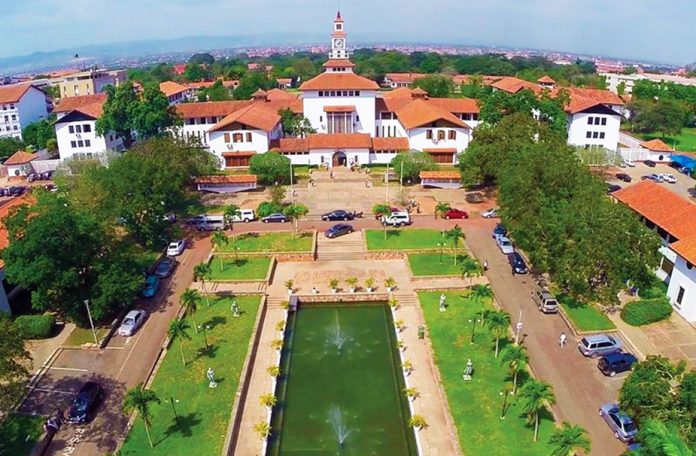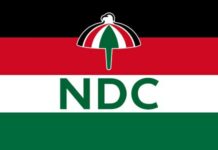The Ministry of Gender, Children and Social Protection (MGCSP) has called on tertiary institutions across Ghana to foster safer and more inclusive environments as part of efforts to combat sexual harassment and gender-based violence (GBV).
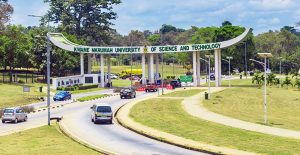
“Creating a safe, inclusive and supportive tertiary institution is not the responsibility of one ministry or organisation,” said Mrs. Ernestina Oduro, Senior Programme Officer at the MGCSP, adding “It requires collective ownership, commitment and action from us all.”
Mrs. Oduro was speaking at a two-day multi-stakeholder workshop held at Aburi in the Eastern Region.
The workshop, which focused on survivor-centered approaches to GBV and sexual harassment response brought together key stakeholders including policymakers, gender experts, university officials, student leaders, Women Commissioners, civil society organisations and representatives from the Ghana Police Service’s Domestic Violence and Victim Support Unit.
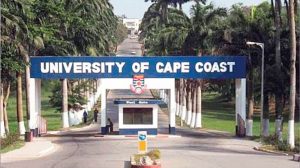
Participants represented five major public universities; University of Ghana, University of Cape Coast, University for Development Studies, Kwame Nkrumah University of Science and Technology and University of Education, Winneba.
Jointly organised by the POS Foundation, a Ghanaian civil society group promoting justice and policy reform and global organisation, Amplify Change, the workshop examined gaps in university gender policies and explored effective strategies to enhance protection and accountability across campuses.
Mrs. Oduro stressed the impact of harassment and GBV on students, particularly women and girls, saying these acts violate fundamental human rights and undermine safety, dignity, and academic potential.
She applauded the integration of survivours’ voices in the discussions, noting this ensures policies are rooted in real experiences.
Policy, Technology and Early Education
Dr. Emmanuel Newman, Director of the Tertiary Education Division at the Ministry of Education, acknowledged the persistent issue of sexual harassment in tertiary institutions. He urged the POS Foundation to broaden its advocacy efforts to include private and technical institutions.
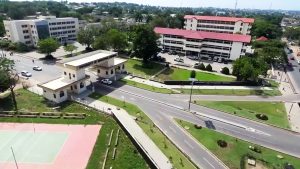
Dr. Newman also advocated for digital tools to report abuse, citing Kwame Nkrumah University of Science and Technology’s (KNUST) discreet online reporting platform as a model for other institutions.
Executive Director of the POS Foundation, Mr. Jonathan Osei Owusu, raised concerns about societal beliefs that financial investment in relationships grants control over another person’s body—a mentality he noted is also present among individuals in positions of authority.
“Unfortunately, this same attitude exists among those with academic, social, or professional power, who exploit their status to demand access and control over others, especially women and young people,” he said.
Mr. Osei Owusu stressed the vulnerability of students, particularly first-years, who may lack awareness or support systems to report abuse.
“Your body belongs to you. Consent is never a transaction. No level of financial support, emotional manipulation, or academic mentorship entitles anyone to another person’s body.”
He called for early education on bodily autonomy, starting at birth and reinforced throughout life.
Mr. Osei Owusu said that with support from university authorities, the POS Foundation has sensitised students on their rights and institutional policies.
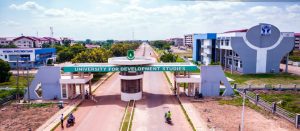
However, interactions with students have revealed disturbing cases of violent sexual abuse. “This is a societal issue. It demands a coordinated response involving academic institutions, law enforcement, the Ministry of Education, and broader society,” he said.
Holistic, Survivour-Centered Responses Needed
Mercy Catherine Adjabeng, a Gender and Communication Specialist, advocated for increased awareness of existing policy frameworks and the need to build trust in reporting mechanisms.
She noted that while universities offer counselling and psychosocial support for survivours, mistrust in the system often discourages victims from coming forward—hindering progress in tackling campus sexual violence.
Mrs. Adjabeng also called for a holistic, survivor-centered approach to addressing sexual abuse, including the establishment of “one-stop centres” where victims can access support services in a single location.
“Sexual harassment and assault continue to erode the safety, dignity, and academic potential of both students and staff, particularly those from marginalized communities,” she said.
Queenmother Nana Yopeyo Dadetsu II of Dodowa-Manya added her voice, urging civil society organisations to step up community outreach and public education to break the silence surrounding harassment and GBV.
The workshop concluded with a shared commitment from all stakeholders to advance policies and practices that prioritize student safety, promote accountability, and build inclusive academic environments where every student can thrive—free from fear, intimidation, or abuse.

